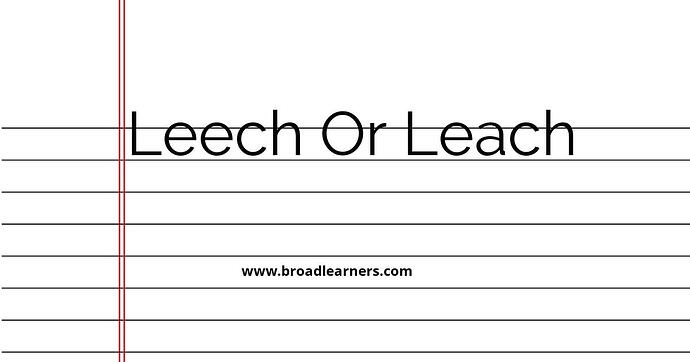'Leech' and 'leach' are commonly confused words in English grammar. Understanding the difference between 'leech' and 'leach' is important to use them correctly in written and spoken English.
'Leech' is a noun that refers to a blood-sucking worm-like creature, typically found in freshwater environments. It can also be used as a verb to describe the act of extracting or draining resources from someone or something.
'Leach' is a verb that means to drain or remove substances, usually liquids, by percolation or filtration. It is commonly used in the context of removing or draining unwanted substances from soil or other materials.
Let's take a closer look at the meanings and usage of 'leech' and 'leach'.
| 'Leech' | 'Leach' |
|---|---|
| The word 'leech' refers to a blood-sucking worm-like creature or can be used as a verb to describe the act of extracting resources. | The word 'leach' is a verb that means to drain or remove substances, usually liquids, through percolation or filtration. |
|
|
To remember the difference between 'leech' and 'leach', it can be helpful to remember that 'leech' refers to a creature or the act of extracting resources, while 'leach' refers to the process of draining or removing substances through percolation or filtration.
Here are some examples of correct usage:
- I hate leeches; they suck blood and can transmit diseases.
- He leeches off his parents by living in their basement and not paying rent.
- The heavy rain caused the soil to leach nutrients, affecting the crop growth.
- It is important to leach chemicals from industrial waste before disposing of it.
Remembering the correct usage of 'leech' and 'leach' will improve your grammar and communication skills.
